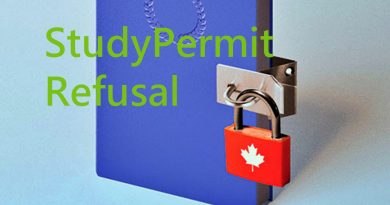Expert Comments: Canada Study Permit Financial Sufficiency
November 13, 2021 by Steven Meurrens
The Immigration, Refugees and Citizenship Canada Guidelines state:
Students are required to demonstrate financial sufficiency for only the first year of studies, regardless of the duration of the course or program of studies in which they are enrolled. In other words, a single student entering a four-year degree program with an annual tuition fee of $15,000 must demonstrate funds of $15,000 to satisfy the requirements, and not the full $60,000 which would be required for four years. Officers should be satisfied however that the probability of funding for future years does exist (i.e., parents are employed); scholarship is for more than one year. Applications for extensions made to CPC-E must also meet this requirement.
In assessing the adequacy of a student’s financial resources, officers may exercise discretion in the documentation they request from applicants. In situations where student applicants generally pose a very low risk regarding funds, officers may choose to limit or waive routine requirements for documentary evidence. Low-risk applicants are more likely to be exempted from the requirement to obtain a temporary resident visa. Based on the known incidence of indigent and non-bona fide applicants, reliability of financial documentation, and so forth, individual visa offices are best placed to determine whether routinely requiring banking documentation and/or more extensive financial background information is necessary to ensure program integrity. Students from developed countries who are both visa exempt and from socio-economic backgrounds similar to Canada might only be required to state their available funds.
Conversely, in some very high-risk environments, requiring and systematically verifying substantial history of funds and supplementary individual or family financial and employment documentation may be necessary to ensure that only genuine students capable of supporting their program of studies are accorded study permits.
Officers may take into consideration such sources of funds derived through scholarships, fellowships, assistantships and the like, as well as financial support or support in kind that may be available from relatives in Canada. International students in Canada are ineligible for benefits under the Canada Student Loan program.
In Etwaroo v. Canada (Citizenship and Immigration), 2021 FC 1160, the refusal reasons stated:
The PA’s uncle intends to finance his studies along with the PA’s parents. I note funds initially submitted in name of parents (mother 2400 $CAD approx. in Nov 2019 and father approx. 1800 $CAD in Nov 2019). PA requires approx. 28000CAD.
The funds are insufficient to cover tuition, living expenses for one year and transportation. Most if [sic] the PA’s funding comes from uncle. I note sufficient funds from Afrasia account dated Nov 2019. However, third part funds can be withdrawn at any given time and unclear what other financial obligations sponsor has. As such I put less weight on the PA and parents economic establishment in CoR and available funds. In updated submissions, the representative sent updated financial documents for uncle with sufficient balance.
Updated bank statements for PA’s parents indicate similar balance for mother, but only approx. 600CAD for father. 1700CAD in cash to the PA, which appears on his bank statement and makes almost the whole balance. I also note updated LOA for September start. I reviewed all the information. However, I am not satisfied this applicant is a bona fide student.
Justice Ahmed found this unreasonable, stating:
In my view, the Officer’s finding that the Applicant had insufficient funds to support his studies is not justified in light of the uncle’s signed declaration and evidence indicating his financial stability and willingness to support the Applicant, including his commitment to offer the Applicant employment once he completes his studies.
I also agree with the Applicant’s submission that the Officer’s reasoning that his uncle’s funds could be withdrawn at any time is speculative and that the Officer arrived at this conclusion without providing a rationale.
Study permits: Assessing the application
The following documents must be provided with a study permit application for both new applications and renewals:
- Application for Study Permit Made Outside of Canada form [IMM 1294] (overseas) or Application to Change Conditions, Extend my Stay or Remain in Canada as a Student form [IMM 5709] (inland);
- Family Information form [IMM 5645], if applicable;
- Schedule 1 – Application for a Temporary Resident Visa Made Outside Canada form [IMM 5257], if applicable;
- Statutory Declaration of Common-law Union form [IMM 5409], if applicable;
- Custodianship Declaration form [IMM 5646], for applicants who are minors;
- Use of a Representative form [IMM 5476], if applicable;
- Letter of acceptance (outside of Canada), or letter of enrolment or transcript (renewals) from a designated learning institution (DLI);
- Proof of financial support;
- Quebec Acceptance Certificate (CAQ) or letter of approval from the Ministère de l’Immigration, de la Diversité et de l’Inclusion (MIDI) for a CAQ for applicants destined to Quebec;
- Application processing fee payment, and if applicable, biometric process fee payment;
- Proof of identity:
- original valid passport, or
- photocopy of the information/biodata page of the applicant’s passport;
- Two recent passport-sized photographs (applicant’s name and date of birth should be written on the back of the photos); and
- Proof of completion of upfront medical examination from the panel physician (optional).





